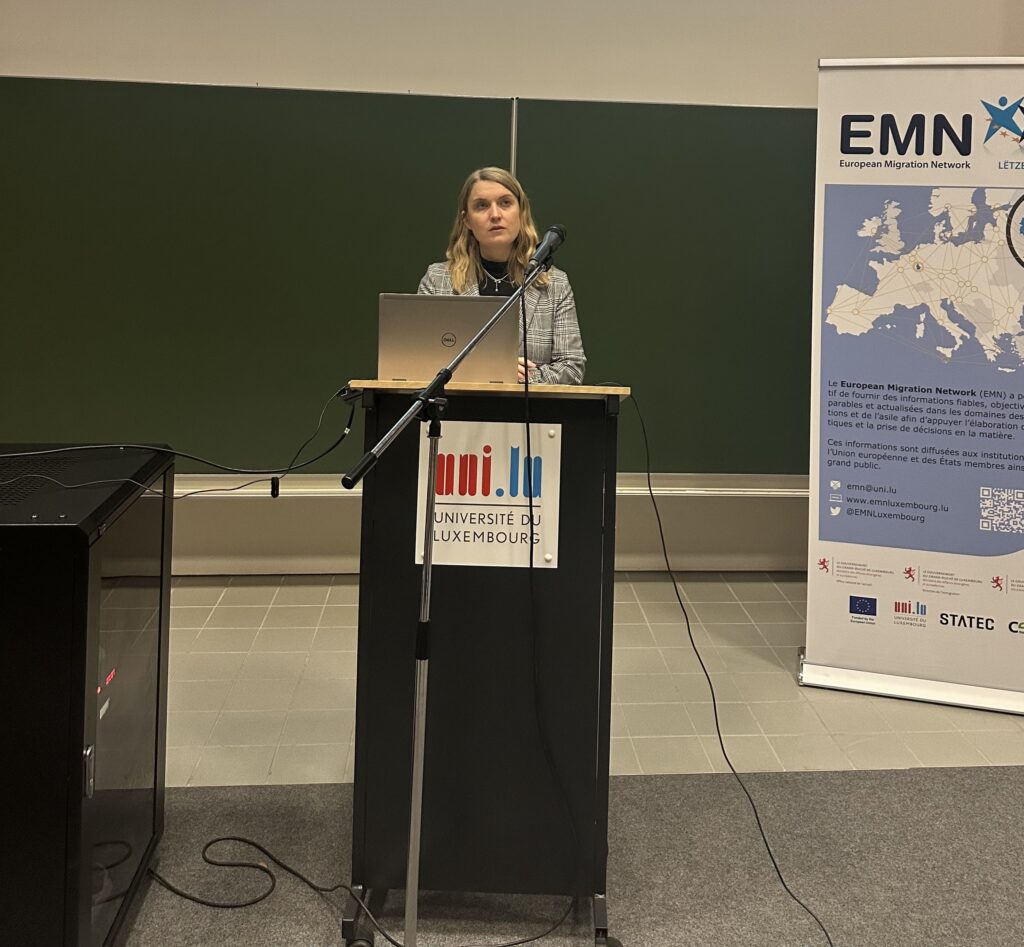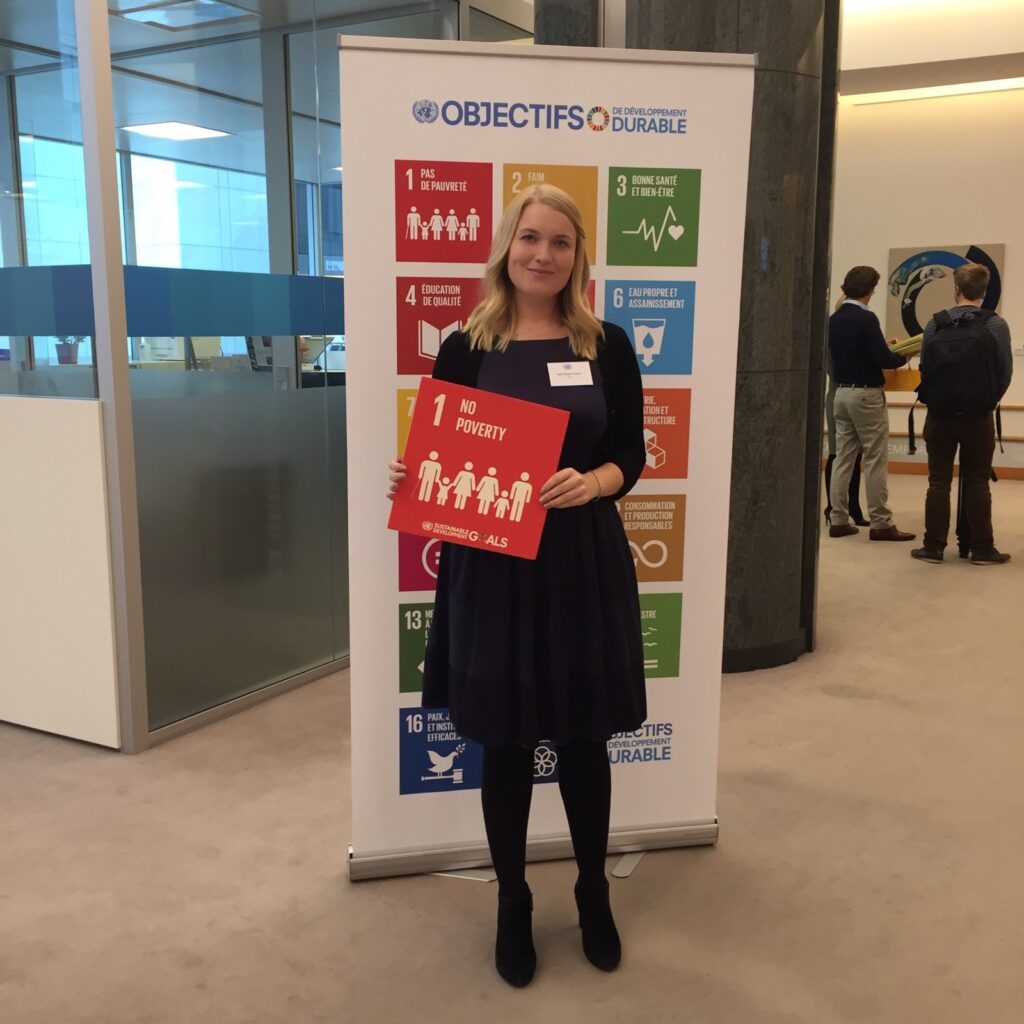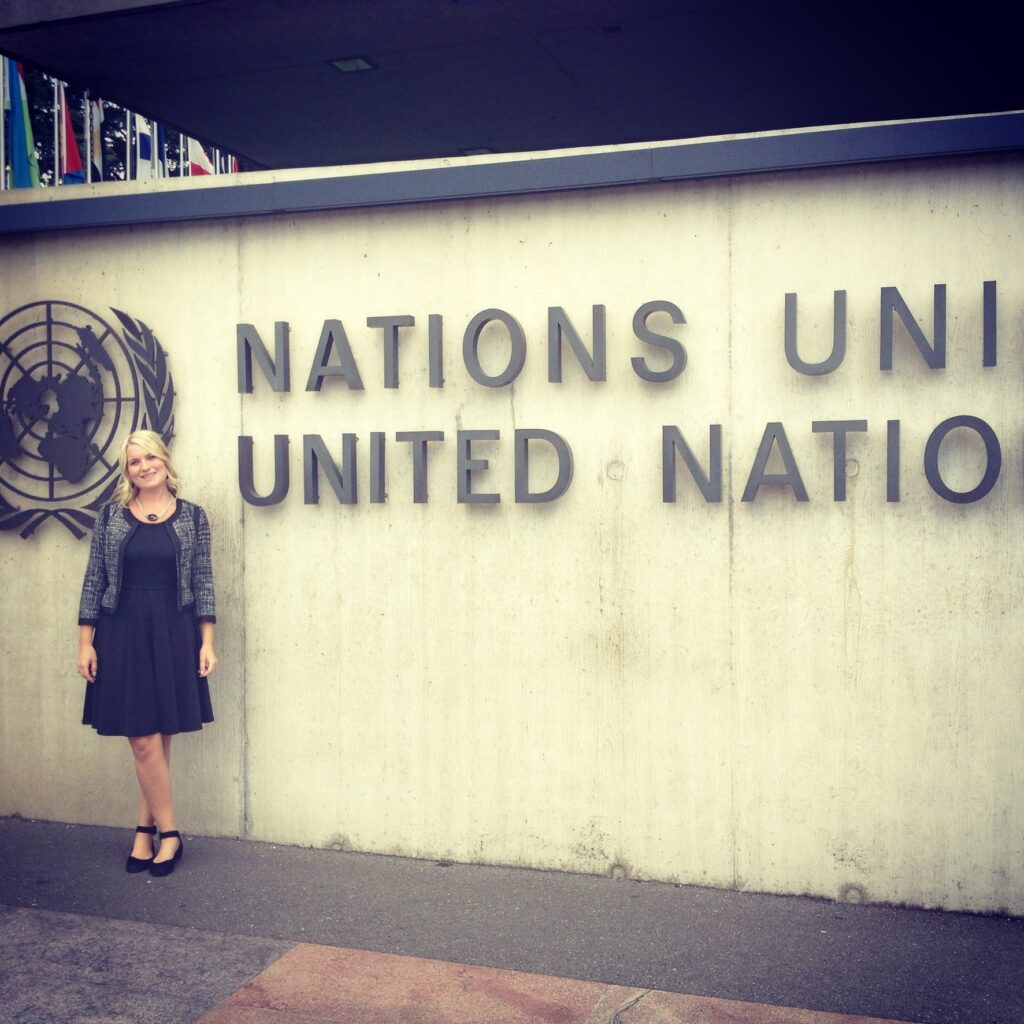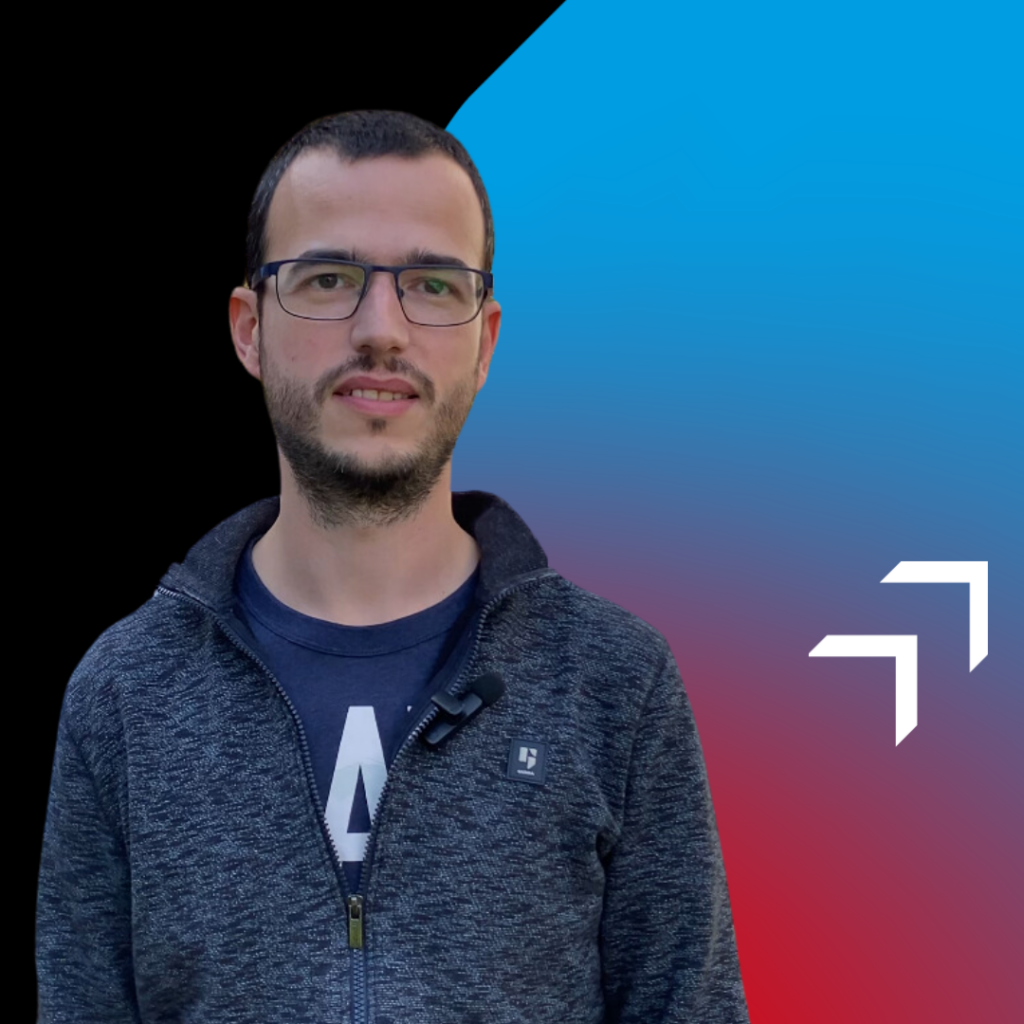In Conversation With Our Young Researchers: Naja Thaulov Camisa
19 July 2024

Media & Migration
The surge in migrant arrivals in Europe from 2013 to 2017 was paralleled by increased media attention on the issue. Analysing the impact of this media pressure on migration policies will yield objective, comparable, and policy-relevant insights into the EU asylum system.
Have traditional and social media narratives impacted policy initiatives related to migration and migrant protection in the EU during the so-called refugee crisis from 2013 to 2017?
Naja Thaulov Camisa is a PhD candidate at the Department of Geography and Spatial Planning at the University of Luxembourg. Her field of research is migration studies.
Migration: From Field to Research
After a Master’s degree in Global Refugee Studies from Aalborg University in Copenhagen, and a BA in Intercultural Studies and Psychology from Roskilde University, Naja Camisa worked for five years in a number of different international institutions, mainly on issues related to migration and forced displacement, with a particular focus on the European asylum system. This includes, among others, an internship at the European Commission in 2016, during the so-called refugee crisis, in their Asylum Unit, and working with the International Organisation for Migration in Brussels. She then arrived in Luxembourg in 2017, after living in Nairobi, where she started working for the European Investment Bank (EIB) as a Graduate Communications Officer.

After 2,5 years at the EIB, I realised that, although the work on Communication was interesting and challenging, I missed working with the field, for which I am most passionate about, namely protection and forced displacement.
Naja Camisa
Naja Camisa therefore contacted Prof. Nienaber, and applied for the AFR Individual PhD grant of the Luxembourg National Research Fund (FNR). She started her research at the University in January 2020.
The scope of Naja’s research is to analyse whether traditional and social media narratives have had an impact on policy initiatives related to migration and migrant protection in the EU, during the so-called refugee crisis, from 2013 to 2017. The increase in the number of migrants arriving in Europe during this period was accompanied by a parallel increase in media attention to the issue, highlighting systemic flaws in the European Union’s asylum system.
Linking Media Activity to Migration Policy Developments
The research will address this impact by going beyond traditional agenda setting theories to understand the media’s impact on the substantial political agenda and decision-making process related to EU directives and responses to migration. This will be done, through a comparative and longitudinal study, through a comprehensive mapping exercise, drawing lineaments between media, external events and policy developments within the EU over the defined timeframe, using a mixed methods research design, and machine learning technologies.

We live in an interconnected and globalised world, where migration is expected to only increase. It is therefore important to understand the interconnections influencing the EU’s ability to promote safe migration, provide protection and prepare for similar challenges in the future.
Naja Camisa
European Migration Network – EMN
Naja Camisa chose the University of Luxembourg because it has a strong group of researchers working in the field of migration, and in particular the work of Prof. Birte Nienaber, from the Migration and Inclusive Societies research group and coordinator of the European Migration Network Luxembourg (EMN).
The European Migration Network (EMN) is an EU co-funded network that aims to provide objective, comparable and policy-relevant information and knowledge on emerging issues related to asylum and migration in Europe. Check out EMN Luxembourg’s website
The University has proved to be a supportive place to develop as a young researcher, where I have been given a range of opportunities to continue developing both within and outside the scope of my own research project, including through teaching a Master class in “an Introduction to Migration Studies”, which have revealed a passion for teaching, which I would not have discovered, were it not for the opportunities of growth offered within the University.
Naja Camisa
A passion for research and teaching
Since joining the University of Luxembourg, Naja Camisa has learned how much she appreciates spending her day researching and writing about a topic, which she is so passionate about. Naja has also discovered that she truly appreciates teaching this topic to other people – conveying the importance of understanding migration, and how diverse a group of migrants really is.
I placed a lot of emphasis on trying to change the perception of migration, which is often conveyed in the media. No one can be illegal. There is no such thing as an illegal migrant, and an economic migrant can be anyone, including myself. I moved for work, thus making me an economic migrant – and proud to be so.
Naja Camisa
Luxembourg, a multicultural place like no other
Naja Camisa had already been living in Luxembourg for a while when she joined the University of Luxembourg. Having lived in many other places, Naja finds that Luxembourg to be a great place to live, close to the countryside and yet a short trip away from the city centre, full of people and restaurants: “it is difficult to find other countries where this is a possibility – and since I own a horse and spend a lot of time outdoors, this is quite important for me.”
In addition, Luxembourg is a truly international country, where you are exposed to different languages wherever you go, and everyone either speaks English or will try to communicate as best they can wherever they go.

I have lived in other cities that are also multicultural, including Brussels and Geneva, but nowhere do you feel it more than you do in Luxembourg.
Naja Camisa










